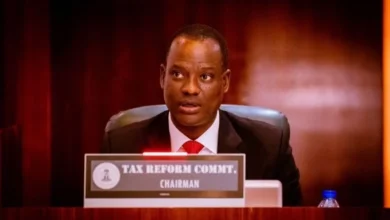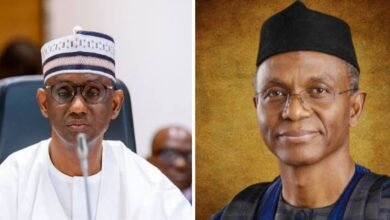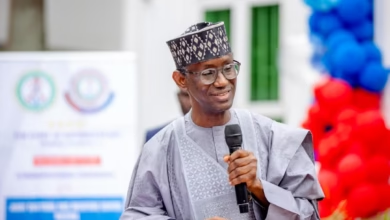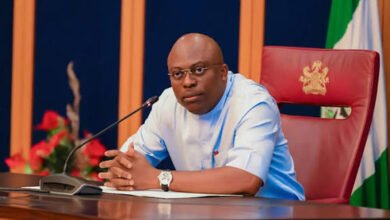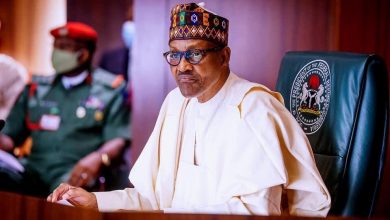NewsPoliticsPress release
It is political malpractice for parties to govern without a manifesto- Dogara
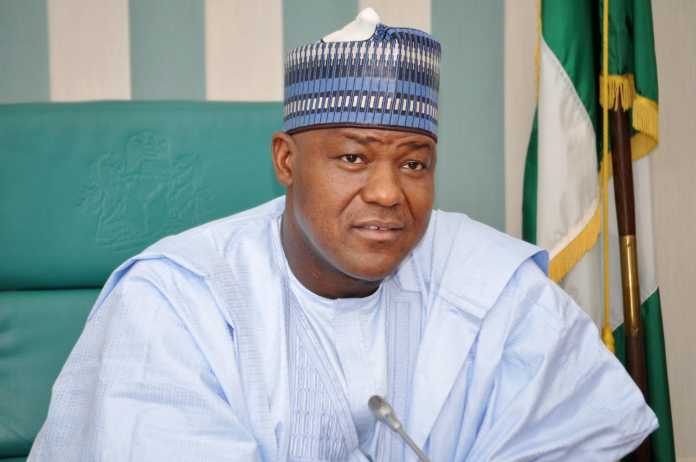
…Political parties that fail to embrace internal democracy, reforms risk extinction- Dogara
Hon. Yakubu Dogara, Speaker, House of Representatives, has said that any political party that fails to embrace and implement reforms to institute internal democracy risk extinction.
He said in an attempt to either capture or hold on to power, some political parties have sometimes embellished their manifestoes with unrealistic promises which according to him, “is a political malpractice for an elected government to govern without reference to the manifesto that was placed before the voters which essentially formed the basis of their election.”
Delivering a remarks at a retreat on dynamics of managing political parties organised by the National Institute for Policy & Strategic Studies in Abuja Monday, Hon. Dogara argued that it amounts to political malpractice for political parties to rule without manifesto at any level.
The Speaker stated that for political parties to effectively play central role in democratic representation, they must be managed and operated in such a manner as to establish trust among the electorate.
Regrettably, in Africa, and Nigeria in particular, according to him, political parties are weak, lacking not only a stable and functioning party apparatus, but also a clear programmatic appeal.
“ They also suffer from low organisational capacity and a lack of internal democracy. Such weak political parties cannot support democracy as parties are expected to serve many important functions, including citizen mobilisation, interest aggregation, public policy formulation, leadership recruitment, and government organisation.”
Dogara maintained that the apparent weaknesses of political parties in Nigeria underline the need for reform and professionalisation saying, “by professionalisation we mean ‘an institutional process by which professionals become more central to the running of our parties.’ Currently our parties in Nigeria could do with better professional organisation of their operations.”
See the Full Speech Below;
REMARKS BY HIS EXCELLENCY, RT. HON. YAKUBU DOGARA, SPEAKER HOUSE OF REPRESENTATIVES, FEDERAL REPUBLIC OF NIGERIA AT A RETREAT ON DYNAMICS OF MANAGING POLITICAL PARTIES AT NICON LUXURY HOTEL, ABUJA ON 29TH-30TH JANUARY, 2018.
Protocols:
I am delighted for the opportunity to make these remarks as a Guest of Honour at this very important retreat on the Dynamics of Managing Political Parties in Nigeria. I am particularly impressed by the topics that will be covered during this Retreat. These include, Political Parties and Party administration; Membership recruitment and Management; Designing Membership Management System; ICT and political party Management; Imperative of media policy and usage by political parties; Relationship between Political Parties and Election Management Bodies; Campaign strategies; Poll watching and election observation; Monitoring and Evaluation etc.
2. It is well known that political parties play very important roles in democratisation of any nation. Indeed without political parties, a modern representative democracy is not achievable as political parties ensure that citizens are able to act politically. They articulate and integrate different interests, visions and opinions; develop policy proposals for governance and development and serve as the main source for the recruitment of political leaders.
3. For political parties to effectively play this central role in democratic representation, they must be managed and operated in such a manner as to establish trust among the electorate.
4. Form a Legislative point of view the Constitution of the Federal Republic of Nigeria and the Electoral Act contain detailed provisions on political parties. Apart from Section 40 of the Constitution, Item 56 of the Exclusive Legislative List provides for Regulation of Political Parties as a matter exclusive to the National Assembly. Indeed the entire Part 111, Supplemental, D which covers Sections 221 to 229 deals with political parties. Furthermore, the Electoral Act contains various Rules and Regulations concerning the affairs of political parties. So the basic legislative framework for administration of political parties is well developed.
5. In Africa, and Nigeria in particular, political parties are weak, lacking not only a stable and functioning party apparatus, but also a clear programmatic appeal. They also suffer from low organisational capacity and a lack of internal democracy. Such weak political parties cannot support democracy as parties are expected to serve many important functions, including citizen mobilisation, interest aggregation, public policy formulation, leadership recruitment, and government organisation.
6. In a 2013 Capacity Needs Assessment of Political Parties in Nigeria by the Democratic Governance for Development Project (DGD), the following key gaps in Nigeria’s political party system were identified: 1) an unclear legal framework; 2) poor relationship between parties and INEC; 3) lack of civility and insufficient inter-party dialogue; 4) lack of cohesion in political parties leading to frequent “cross carpeting” between parties; 5) a lack of ideological and policy orientation in the contest for power between parties; and; 6) a limited ability of opposition parties to compete with the ruling party.
7. At the level of individual party capacity, a number of challenges also stood out. These include: (1) lack of an inclusive and research-based policy and manifesto development process that provides a clear policy framework for them to govern; (2) lack of ideological or institutional identities; and limited competence in research and analysis that looks at their own performance and supports clear plans and strategies for building the party.
8. These apparent weaknesses of political parties in Nigeria underline the need for reform and professionalisation. By professionalisation we mean ‘an institutional process by which professionals become more central to the running of our parties.’ Currently our parties in Nigeria could do with better professional organisation of their operations.
9. Professionalisation is about effectiveness and efficiency. To achieve this, it is important that we organise our political parties along the lines of proper functioning bureaucracies, set up functional organisational structures and hire professionals to run the administrative aspects of the party and support party leadership in the general running of our parties. Professionals can deliver expertise on a broad range of areas and issues.
Ladies and gentlemen, the essence of having strong, better organised and professional political parties lies in the fact that they are better able to contribute to good governance through the promotion of accountability, political stability, government effectiveness, control of corruption and rule of law. Thus, parties must be competently managed, internally democratic, well rooted in society, law-abiding, financially transparent and adequately funded, ideologically defined, inclusive of women and youth.
10. For political parties to be influential and effective actors in contributing to good governance, they should essentially start by promoting a culture of good governance through the entrenchment of intra-party democracy, which will consequently lead to a stronger democratic culture in the wider society. This can be reflected in the manner in which party leaders and candidates for election are selected/elected, how internal party policies are set and how memberships are defined within the party and how conflicts are managed. Internal party democracy must be a priority in efforts to restore public confidence in political parties and the democratic process generally. Greater citizen participation, accountability of leadership, transparency and institutional safeguards are now more important than ever for the democratisation of political parties.
11. Another important aspect of good governance within parties is inclusive participation, underlined by intra-party elections and the involvement of all stakeholders in the decision-making processes of the party. The participation of women in intraparty processes is an indispensable component of equal opportunity and should be imbibed and entrenched by our parties. Happily, most political parties have adopted policies to increase quality participation of women and youths in the political party process. A lot more still needs to be done as the percentage of women and youths in elective offices in Nigeria is abysmally low, if not scandalous.
12. Furthermore, political parties contribute to good governance through their manifestoes which serve as important benchmarks for measuring the performance of a Government and ensuring that they are accountable to the electorate based on the promises outlined in their manifestoes. It is worthy to mention that in an attempt to either capture or hold on to power, some political parties have sometimes embellished their manifestoes with unrealistic promises. It is a political malpractice for an elected government to govern without reference to the manifesto that was placed before the voters which essentially formed the basis of their election. Political parties must ensure that they relate their manifestoes to a strategic framework which carry the development vision of the entire nation. That is why the Constitution provides that manifesto of political parties must align with Chapter 2 of the Constitution, which is the Fundamental Objectives and Directive Principle of State Policy which is the philosophical basis of government in Nigeria.
13. Political parties can also be strengthened to play more effective role in democratic consolidation through capacity building that include research and publications in thematic areas, country dialogue workshops, training and international conferences. I would like to thank the organisers of this programme , National Institute for Policy and Strategic Studies, for this innovative and timely meeting and for reaching out to such a broad range of stakeholders.
14. Let me conclude by saying that political parties can stay relevant so long as they mediate different interests and offer coherent visions, which they can advocate in elections and through running and effective people oriented government. Political parties that fail to address the issues that citizens consider to be most important , risk becoming irrelevant and disappearing from the political map.
15. Thank you for your attention, and I hope that your discussions will be highly productive in strengthening Nigeria’s political parties to become effective, professional and democratic institutions.
16. May God bless you all and bless the Federal Republic of Nigeria.

